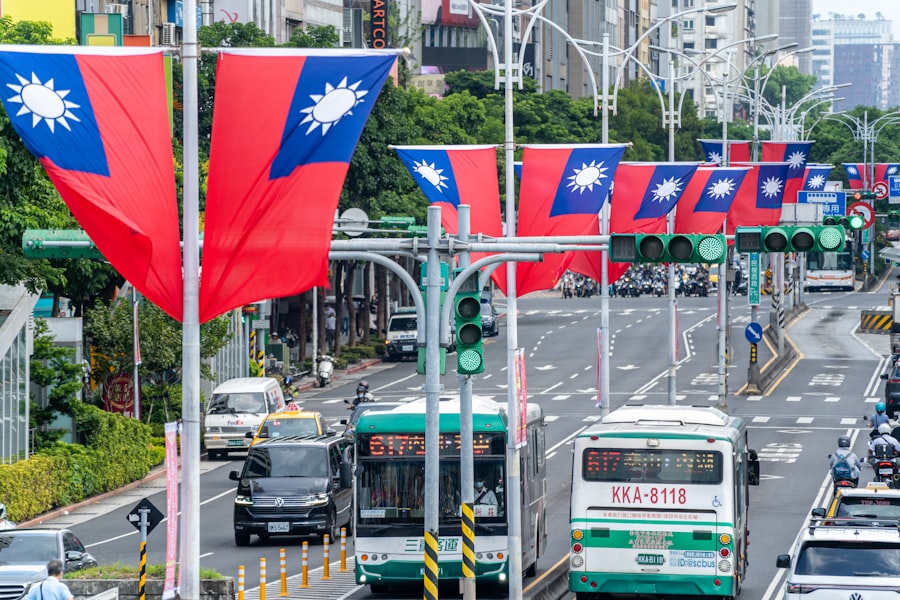African sovereignty is a multifaceted concept that encompasses the political, economic, and cultural autonomy of African nations. It signifies the right of African countries to govern themselves without external interference, allowing them to make decisions that reflect their unique identities and aspirations. This sovereignty is not merely a theoretical construct; it is a vital aspect of nation-building and development.
The quest for sovereignty has been a central theme in Africa’s post-colonial narrative, as nations strive to reclaim their agency and control over their resources, governance, and futures. The notion of sovereignty in Africa is often challenged by historical legacies, economic dependencies, and geopolitical dynamics. Many African nations emerged from colonial rule with borders drawn by foreign powers, leading to complex ethnic and cultural landscapes.
This has made the assertion of sovereignty a challenging endeavor, as internal divisions can complicate national unity. Furthermore, the global economic system often places African countries in subordinate positions, limiting their ability to exercise full control over their resources and economic policies. Thus, understanding African sovereignty requires a nuanced examination of both historical contexts and contemporary realities.
Key Takeaways
- African sovereignty is crucial for effective control and management of the continent’s natural resources.
- Colonialism significantly disrupted African nations’ ability to control their own resources, leading to long-term challenges.
- International organizations play a complex role, sometimes supporting and other times hindering African resource control efforts.
- Empowering African governments and indigenous peoples is key to achieving sustainable and equitable resource management.
- Successful case studies highlight the importance of sovereignty in driving economic development and future resource control strategies.
Historical Context of Resource Control in Africa
The historical context of resource control in Africa is deeply intertwined with the continent’s colonial past. During the colonial era, European powers exploited Africa’s vast natural resources for their own economic gain, often disregarding the rights and needs of local populations. This exploitation laid the groundwork for a legacy of resource mismanagement and inequity that continues to affect African nations today.
The extraction of minerals, oil, and agricultural products was conducted with little regard for sustainable practices or the welfare of indigenous communities, leading to environmental degradation and social unrest. Post-independence, many African nations sought to reclaim control over their resources as a means of fostering economic development and self-sufficiency. However, the transition from colonial rule to self-governance was fraught with challenges.
Newly independent states often inherited weak institutions and economies heavily reliant on a single commodity or sector. This dependency on resource extraction made them vulnerable to global market fluctuations and external pressures, complicating their efforts to establish true control over their resources. The historical context of resource control in Africa thus reveals a complex interplay between colonial legacies and contemporary struggles for autonomy.
The Impact of Colonialism on African Resource Control
Colonialism had a profound impact on African resource control, shaping the political and economic landscapes of the continent in ways that are still felt today. The imposition of foreign rule disrupted traditional systems of governance and resource management, replacing them with exploitative practices designed to benefit colonial powers. This led to the extraction of wealth from Africa without adequate reinvestment in local communities or infrastructure.
As a result, many African nations emerged from colonial rule with economies that were not only underdeveloped but also heavily skewed towards resource extraction. The consequences of this colonial legacy are evident in the ongoing struggles for resource control faced by African nations. The lack of investment in human capital and infrastructure during colonial times has left many countries ill-equipped to manage their resources effectively.
Additionally, the borders established by colonial powers often ignored ethnic and cultural divisions, leading to conflicts that further complicate resource management. The impact of colonialism on African resource control is thus characterized by a legacy of exploitation, underdevelopment, and ongoing challenges that continue to shape the continent’s economic landscape.
Challenges to African Resource Control
| Challenge | Description | Impact on Resource Control | Examples |
|---|---|---|---|
| Political Instability | Frequent changes in government and conflicts disrupt policy continuity. | Hinders long-term resource management and deters investment. | Sudan, Democratic Republic of Congo |
| Corruption | Mismanagement and embezzlement of resource revenues by officials. | Reduces funds available for development and weakens governance. | Nigeria, Angola |
| Foreign Exploitation | Multinational corporations often control extraction and profits. | Limits local benefits and control over resources. | Oil in Nigeria, Minerals in South Africa |
| Inadequate Infrastructure | Poor transport, energy, and processing facilities. | Restricts efficient resource extraction and value addition. | Many rural mining areas across Africa |
| Legal and Regulatory Challenges | Weak or unclear laws governing resource ownership and use. | Creates uncertainty and conflicts over resource rights. | Land disputes in Ghana, mining licenses in Zambia |
| Environmental Concerns | Resource extraction often causes ecological damage. | Leads to community opposition and stricter regulations. | Deforestation in Cameroon, oil spills in Niger Delta |
| Limited Technical Expertise | Shortage of skilled professionals in resource management. | Reduces efficiency and innovation in resource sectors. | Mining and oil sectors in many African countries |
African nations face numerous challenges in their quest for effective resource control.
Corruption undermines efforts to ensure that resource wealth benefits local populations, often resulting in wealth being siphoned off by elites or foreign corporations.
This not only exacerbates inequality but also fuels social unrest and undermines trust in government institutions. Another challenge is the influence of multinational corporations that often dominate resource extraction industries in Africa. These corporations frequently negotiate favorable terms with governments, which can lead to unequal power dynamics and exploitation of local resources.
Additionally, many African countries lack the technical expertise and infrastructure necessary to fully harness their resources, making them reliant on foreign companies for extraction and management. This dependency can hinder efforts to build local capacity and achieve true sovereignty over natural resources.
The Role of International Organizations in African Resource Control
International organizations play a crucial role in shaping the landscape of resource control in Africa. Institutions such as the United Nations, the African Union, and various non-governmental organizations (NGOs) work to promote sustainable development practices and advocate for the rights of African nations regarding their natural resources. These organizations often provide technical assistance, funding, and policy guidance aimed at strengthening governance frameworks and enhancing transparency in resource management.
However, the involvement of international organizations is not without its complexities. While they can offer valuable support, there is also a risk that their interventions may inadvertently perpetuate neocolonial dynamics if not approached with sensitivity to local contexts. It is essential for these organizations to collaborate closely with African governments and communities to ensure that their initiatives align with local needs and priorities.
Ultimately, the role of international organizations in African resource control should be one of partnership rather than paternalism.
Strategies for Empowering African Nations in Resource Control

Empowering African nations in resource control requires a multifaceted approach that addresses both governance and capacity-building challenges. One effective strategy is the establishment of strong legal frameworks that promote transparency and accountability in resource management. By enacting laws that require public disclosure of contracts and revenue flows, governments can help ensure that resource wealth is used for the benefit of all citizens rather than a select few.
Capacity-building initiatives are also essential for empowering local communities and governments to manage resources effectively. This can involve training programs aimed at developing technical skills related to resource extraction, environmental management, and sustainable development practices. Additionally, fostering partnerships between governments, civil society organizations, and local communities can enhance collaboration and ensure that diverse perspectives are considered in decision-making processes.
Case Studies of Successful Resource Control in Africa
Several case studies illustrate successful approaches to resource control in Africa that can serve as models for other nations. One notable example is Botswana, which has effectively managed its diamond resources through a combination of strong governance, transparency, and investment in social development. The government has established a partnership with De Beers, ensuring that a significant portion of diamond revenues is reinvested into education, healthcare, and infrastructure development.
Another example is Ghana’s efforts to manage its cocoa industry sustainably. By implementing fair trade practices and promoting local processing of cocoa beans, Ghana has been able to increase its share of value-added production while supporting smallholder farmers. These case studies demonstrate that with effective governance and strategic partnerships, African nations can successfully assert control over their resources while promoting economic development.
The Importance of Sovereignty in Economic Development
Sovereignty is intrinsically linked to economic development in Africa. When nations have control over their resources, they can make decisions that align with their developmental goals rather than being beholden to external interests. This autonomy allows for the implementation of policies that prioritize social welfare, environmental sustainability, and long-term economic growth.
Furthermore, asserting sovereignty over resources can enhance national pride and identity among citizens. When people see tangible benefits from their country’s natural wealth—such as improved infrastructure, education opportunities, and healthcare—they are more likely to support government initiatives and engage in nation-building efforts. Thus, sovereignty is not just a political concept; it is a foundational element for fostering inclusive economic development across the continent.
The Role of African Governments in Resource Control
African governments play a pivotal role in shaping the landscape of resource control within their nations. Effective governance is essential for establishing legal frameworks that promote transparency and accountability in resource management. Governments must prioritize building strong institutions capable of overseeing resource extraction processes while ensuring that revenues are equitably distributed among citizens.
Moreover, African governments must engage with local communities to understand their needs and perspectives regarding resource management. By fostering inclusive decision-making processes that involve diverse stakeholders—such as indigenous peoples, civil society organizations, and private sector actors—governments can create policies that reflect the interests of all citizens rather than just those in power.
The Role of Indigenous Peoples in Resource Control
Indigenous peoples hold invaluable knowledge regarding sustainable resource management practices that have been passed down through generations. Their deep connection to the land often translates into a profound understanding of ecological balance and biodiversity conservation. Recognizing the rights of indigenous communities in resource control is essential for promoting sustainable development across Africa.
Involving indigenous peoples in decision-making processes related to resource management can lead to more equitable outcomes. Their participation ensures that traditional knowledge is integrated into modern practices while respecting cultural heritage. Furthermore, empowering indigenous communities can enhance social cohesion and resilience against external pressures from corporations or governments seeking to exploit natural resources without regard for local rights.
The Future of African Sovereignty and Resource Control
The future of African sovereignty and resource control hinges on several critical factors: effective governance, regional cooperation, and global solidarity among nations advocating for equitable resource management practices. As African nations continue to navigate complex geopolitical landscapes marked by external influences and internal challenges, fostering unity among themselves will be paramount. Moreover, there is an increasing recognition among global actors about the importance of respecting African sovereignty in discussions surrounding trade agreements and investment policies.
As awareness grows regarding the need for fairer terms that prioritize local communities’ rights over corporate interests, there is potential for transformative change within Africa’s resource management landscape. In conclusion, understanding African sovereignty requires an appreciation for its historical context while recognizing contemporary challenges faced by nations striving for autonomy over their resources. By empowering governments and communities alike through inclusive policies rooted in transparency and accountability—alongside valuing indigenous knowledge—Africa can pave the way toward a future where sovereignty translates into sustainable economic development benefiting all citizens across the continent.
African sovereignty and resource control are critical issues that have garnered significant attention in recent years. A related article that delves into the complexities of these topics can be found at this link. The article explores the historical context of resource exploitation in Africa and discusses the ongoing struggles for self-determination and equitable resource management across the continent.
WATCH THIS! The Secret War for Africa’s Gold: How Private Armies Fund Global Conflict
FAQs
What is African sovereignty?
African sovereignty refers to the full right and power of African nations to govern themselves without external interference. It encompasses political independence, control over national resources, and the ability to make decisions that affect the country’s development and welfare.
What does resource control mean in the African context?
Resource control in Africa involves the authority and rights of African countries or local communities to manage, utilize, and benefit from their natural resources, such as minerals, oil, gas, and agricultural products. It emphasizes local ownership and decision-making over these resources.
Why is resource control important for African sovereignty?
Resource control is crucial for African sovereignty because natural resources are key drivers of economic growth and development. Control over these resources allows African nations to generate revenue, create jobs, and reduce dependency on foreign powers, thereby strengthening their political and economic independence.
What challenges do African countries face in exercising resource control?
Challenges include foreign exploitation, weak governance, corruption, lack of infrastructure, and conflicts over resource ownership. Additionally, multinational corporations and foreign governments sometimes influence resource management, undermining local control and sovereignty.
How do African countries benefit from controlling their resources?
By controlling their resources, African countries can ensure that profits are reinvested locally, support sustainable development, improve infrastructure, and enhance social services. It also enables them to negotiate better terms with foreign investors and reduce economic inequalities.
Are there regional efforts to promote African sovereignty and resource control?
Yes, organizations like the African Union (AU) and regional economic communities work to promote policies that enhance sovereignty and resource control. Initiatives focus on improving governance, encouraging fair trade, and fostering cooperation among African states to manage resources effectively.
What role do local communities play in resource control?
Local communities are often the custodians of natural resources and have a vested interest in their sustainable management. Empowering these communities through legal rights and participation in decision-making helps ensure equitable distribution of benefits and reduces conflicts.
How does resource control impact foreign investment in Africa?
Resource control can lead to more balanced partnerships where African countries negotiate terms that protect their interests. While it may initially create challenges for foreign investors, it ultimately promotes transparency, stability, and sustainable investment environments.
What is the historical background of resource control issues in Africa?
During colonial times, African resources were exploited by foreign powers with little benefit to local populations. Post-independence, many African countries struggled to regain control over their resources due to neocolonial influences, weak institutions, and internal conflicts, making resource control a central issue in sovereignty debates.
How can African countries improve their resource control mechanisms?
Improvements can be made by strengthening legal frameworks, enhancing transparency and accountability, investing in capacity building, promoting community involvement, and fostering regional cooperation to share best practices and negotiate collectively with external actors.





